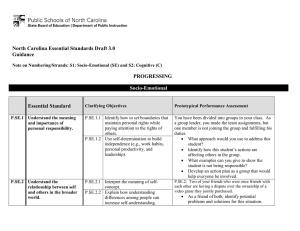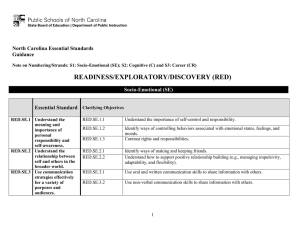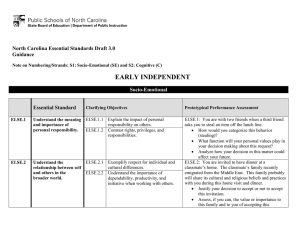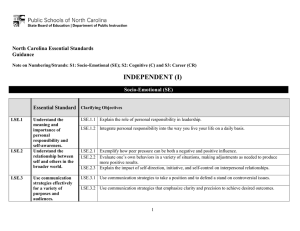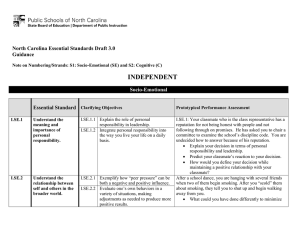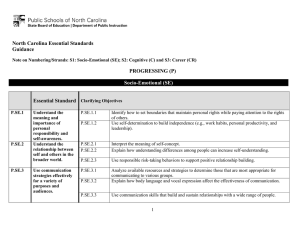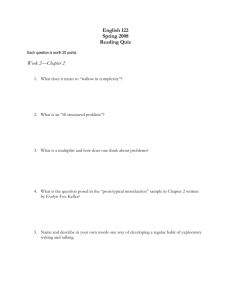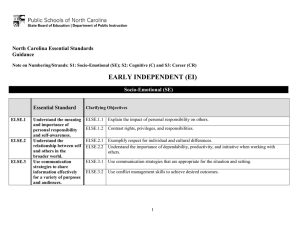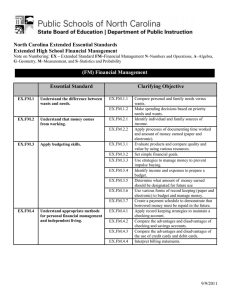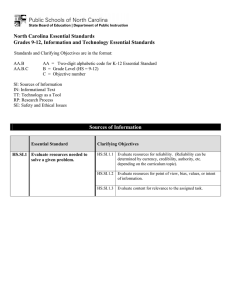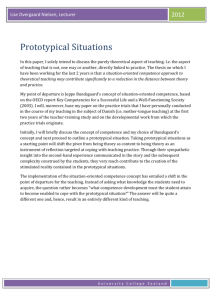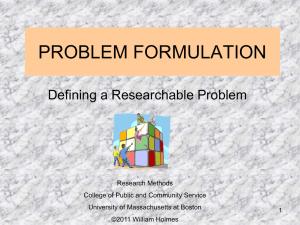READINESS/EXPLORATORY/DISCOVERY North Carolina Essential Standards Draft 3.0 Guidance
advertisement
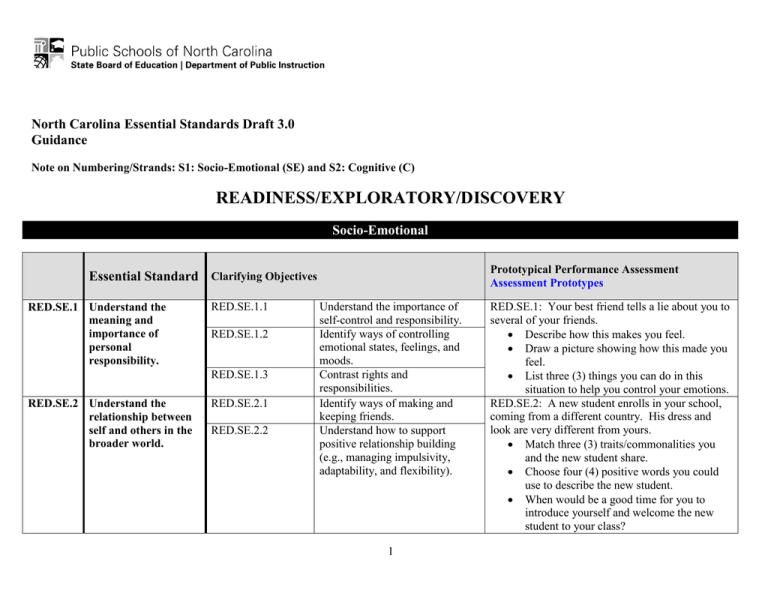
North Carolina Essential Standards Draft 3.0 Guidance Note on Numbering/Strands: S1: Socio-Emotional (SE) and S2: Cognitive (C) READINESS/EXPLORATORY/DISCOVERY Socio-Emotional Prototypical Performance Assessment Assessment Prototypes Essential Standard Clarifying Objectives RED.SE.1 Understand the meaning and importance of personal responsibility. RED.SE.1.1 RED.SE.1.2 RED.SE.1.3 RED.SE.2 Understand the relationship between self and others in the broader world. RED.SE.2.1 RED.SE.2.2 Understand the importance of self-control and responsibility. Identify ways of controlling emotional states, feelings, and moods. Contrast rights and responsibilities. Identify ways of making and keeping friends. Understand how to support positive relationship building (e.g., managing impulsivity, adaptability, and flexibility). 1 RED.SE.1: Your best friend tells a lie about you to several of your friends. Describe how this makes you feel. Draw a picture showing how this made you feel. List three (3) things you can do in this situation to help you control your emotions. RED.SE.2: A new student enrolls in your school, coming from a different country. His dress and look are very different from yours. Match three (3) traits/commonalities you and the new student share. Choose four (4) positive words you could use to describe the new student. When would be a good time for you to introduce yourself and welcome the new student to your class? North Carolina Essential Standards Draft 3.0 Readiness/Exploratory/Discovery Proficiency Level Prototypical Performance Assessment Assessment Prototypes Essential Standard Clarifying Objectives RED.SE.3 Use communication strategies effectively for a variety of purposes and audiences. RED.SE.3.1 Use oral/written communication skills to share information with others. Use non-verbal communication skills to share information with others. RED.SE.3.2 Describe the three (3) most important things about being a student at this school you feel are most important to share with the new student. Recall how you felt on your first day at this school, and identify three (3) things that happened that made you feel safe and welcome. RED.SE.3: It is the beginning of school, and your teacher has asked the class to help him or her write a set of class expectations for the year. List two (2) expectations you feel are important to be included. Tell me three (3) rules that you are now following at home which might be appropriate for the classroom. Recall and share three (3) non-verbal cues you can display to show active listening. Cognitive Essential Standard RED.C.1 Use creative strategies to make decisions and solve problems. Prototypical Performance Assessment Assessment Prototypes Clarifying Objectives RED.C.1.1 RED.C.1.2 Identify problems that you have encountered or are likely to encounter. Identify creative strategies and noncreative strategies. 2 RED.C.1: Your best friend has asked you to let him or her copy your homework. Name three (3) reasons why this is a bad choice to make. Tell me how you would tell your friend you feel this is a bad idea and one you should North Carolina Essential Standards Draft 3.0 Readiness/Exploratory/Discovery Proficiency Level Essential Standard Prototypical Performance Assessment Assessment Prototypes Clarifying Objectives RED.C.2 Use analytical strategies to better understand situations and make appropriate decisions. RED.C.2.1 RED.C.2.2 Identify situations from your daily life in terms of problems and solution strategies. Recognize situations in which peer pressure is influencing decisions. not participate in. Identify three (3) people in your life with whom you could discuss this issue and from whom you could ask for advice. RED.C.2.1: A student reads excerpts from a book that contains both problems and solutions strategies. Have the student identify a problem from the reading. Have the student tell why the situation selected is a problem. Have the student describe three (3) strategies he or she could use to solve the identified problem. Do any characters in the excerpt use peer pressure as a tactic? This information was developed by the School Counselor RBT Revision Committee on February 15-16, 2011, after reviewing Dr. Lorin Anderson’s written feedback to the previous draft. Revised February 2011 3
